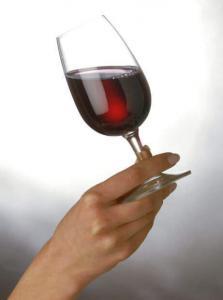The New York State liquor licensing laws would seem fairly straightforward: You serve alcohol in a commercial setting for money, you’ll need to get a license. 
However, the lines have become somewhat blurred when it comes to the education sector. Specifically, wine-tasting “schools.”
Our Manhattan liquor license attorneys understand that a high-profile private investigator, Vincent Parco, has launched a campaign to shut down local educational wine-tasting ventures that he says operate without a liquor license and therefore run afoul of the law.
Generally, if you serve alcohol for sale in New York, you must either have a license or a permit, according to the State Liquor Authority. Obtaining a license is a lengthier, more expensive process, though the kinds of operations we reference here could potentially benefit from having one. There is also the option to apply for a temporary beer and wine permit, which costs $36 daily. Liquor can not be served with a permit.
Alternatively, there is the option of hiring a licensed caterer to provide the food and alcohol for the event in question.
Parco, in an interview with the New York Daily News, insists he is acting solely as a concerned taxpayer, interested only in leveling the playing field. However, he declined to say whether any of his clients include restaurants or bars that could potentially be competitors of the downtown wine-tasting schools he is targeting.
Specifically, Parco is after the International Wine Center (run by the “Wine for Dummies” author), the De Gustibus Cooking School, the NYC Wine Class, the American Sommelier and the Wine and Spirits Program. A number of the programs offer cooking courses that include wine lessons, which involve tastings of samples.
Some of those offering the courses say they have done so for decades absent a liquor license and with no issue whatsoever. They maintain that in their defense, the goal of the courses is not so much the consumption of wine but the educational aspect.
One instructor was quoted by the paper as saying that the courses were held at the Waldorf-Astoria, “hardly a site for criminal activity.” But the fact that the course is held in a swanky location might not be ample enough legal protection. However, the fact that the instructor obtains a permit for each course probably is adequate legal protection.
Part of the confusion may stem from the fact that wine courses such as these are experiencing somewhat of a renaissance. A decade or two ago, you could count the number of such offerings on one hand. Now, it’s estimated there are dozens.
For this reason, the state liquor authority has mulled a request to lawmakers to issue a special license classification that could be issued to such operations to allow them to operate legally.
However, the authority made it clear that even if these operations were operating sans-permit, it wouldn’t be within their authority to enforce it. Rather, officials say, that would be up to the police.
Local law enforcement officials have reportedly warned a number of the operations against serving alcoholic beverages absent a license, according to Parco. However, no further action has been taken.
It remains to be seen whether Parco’s civil lawsuit, and the media attention it has thus far garnered, will change anything.
The Wright Law Firm is located in Midtown Manhattan. Call (212) 619-1500 for a confidential consultation.
Additional Resources:
Vincent Parco takes on Manhattan’s wine-tasting schools, Aug. 29, 2013, By Barbara Ross, New York Daily News
More Blog Entries:
Liquor Store Internet Wine Sales Restricted by State Liquor Authority Ruling, June 11, 2013, Manhattan Liquor License Lawyer Blog